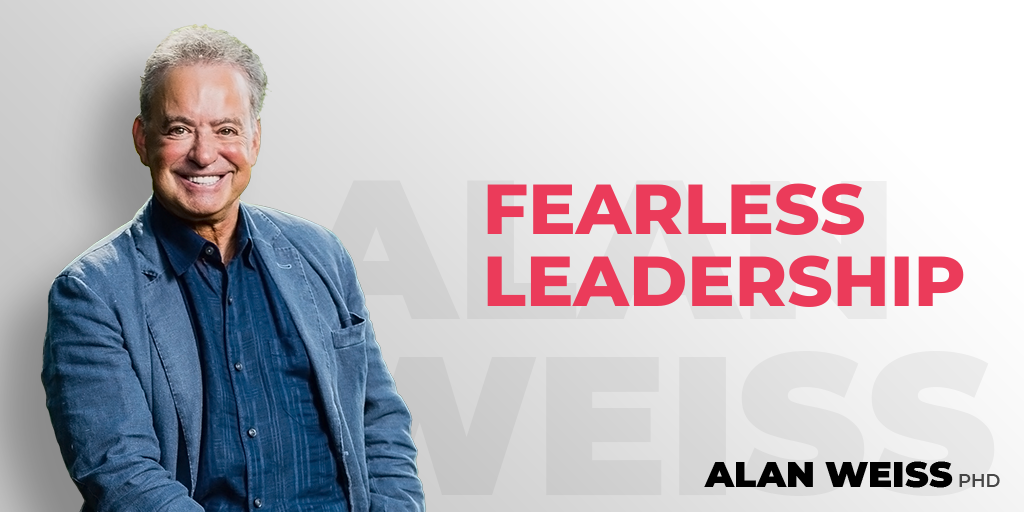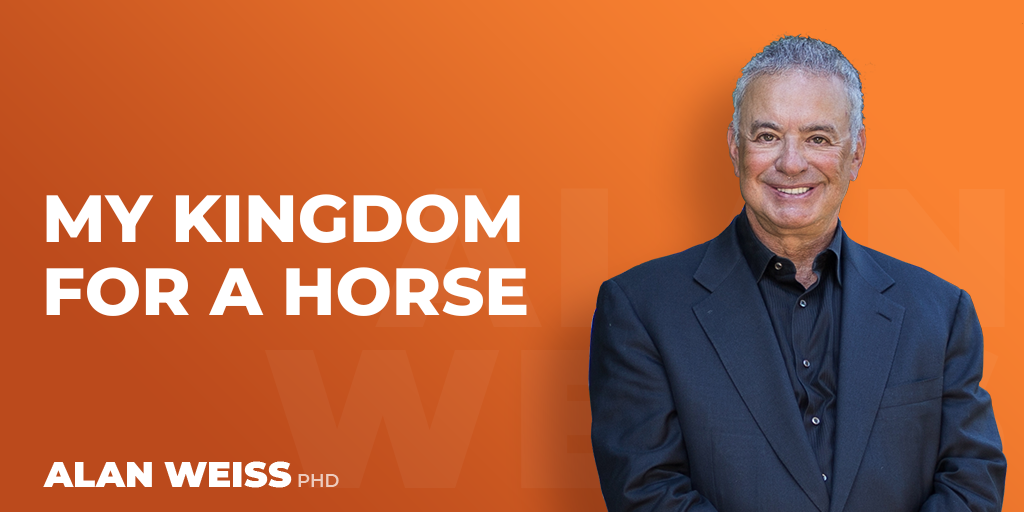The Dictators
Many organizations have leaders who consider themselves the fount of all knowledge and wisdom. Sometimes they founded the place, and believe because they know how to create fluid injection machines they also know the inner workings of human motivation.
Some are CEOs in public organizations who have had a great financial run, often due to luck and others’ talents, and who are in the right place at the right time. Some are in non-profits and arts groups who have a cozy relationship with the key board members.
All of them believe that the know best about all matters.
In New York, Mayor Michael Bloomberg, who previously arranged to change the law so he could run for another term previously denied his predecessors, has decided that breast feeding is best for newborns and is restricting formula availability in hospitals. He has also decided that obesity can be controlled by legislation, and is trying to ban the size of sugar-laden drinks that are served by privately owned restaurants.
The owner of the Chik-fil-A chain, Dan Cathy, is opposed to same-sex marriages, which is a personal religious belief. He does not ban anyone from his stores, he has merely stated that position publicly, exercising his right of free speech. Yet mayors in Chicago, New York, Boston, and elsewhere are attempting to prohibit the opening of new franchises—and the new jobs they represent—by using zoning and planning procedures to deny permits. While I don’t agree with Mr. Cathy’s view, I do believe in his right to express it without being denied the right do to business.
After all, people can simply make the individual choice not to patronize his stores. But do we need parental politicians making that decision for us? What if someone like Mr. Cathy spoke out against abortion, or the war in Afghanistan, and the local mayor had an opposing view? Should his business be closed? What if he were inexplicably a Red Sox fan, and the mayor favored the Yankees?!
In organizational life we sometimes find senior people imposing their personal beliefs on others. An executive who believes he should be working from seven in the morning to seven at night (perhaps because he’s too inefficient to get his job done in more normal hours) tries to influence everyone to sacrifice their personal life for the business. A leader who believes in frugality pressures her people to stay in cheap and unattractive lodgings even though policy doesn’t demand it, because that’s her personal penance.
As consultants, we have to separate positional power from absolute power, and merited talent in one area from McLuhan’s “mixed media effect” of that talent projected into unmerited areas. (The colloquial expression is “Shut up and sing,” meaning excellent singers don’t also deserve credit as superb political analysts, a comment first aimed at Barbra Streisand.)
We need to recognize that one person’s traits of success don’t necessarily constitute an organization’s operating policy, and one person’s belief system doesn’t represent the organization’s core values.
I don’t know about you, but I like Tom Cruise as an actor yet can’t stand listening to him talk about religion and psychology, and while I admire the fact that Mayor Bloomberg’s fortune comes from great business acumen, I don’t ever want him legislating my nutritional or health choices.
Be bold in organizational consulting work. Outstanding business people aren’t necessarily the sole sources of taste, work ethics, or personal choices. We need leaders who exemplify best practices so that other people can appreciate their effectiveness and choose to follow, not leaders who tell you what’s good for you because it’s good for them and demand you follow their belief system.
That sounds more like a dictatorship. They don’t need consultants. They need revolutionaries.
© Alan Weiss 2012. All rights reserved.







Sachin Ganpat
Can’t begin to say how much I like this post.
Elijah Lim
Incisive and insightful as always! Agree to disagree and not be disagreeable, as my high school principal used to say.
Alan Weiss
Love writing it, I’ve had it with this stuff….
Matt Greener
Talk about killing creativity, ambition, productivity and just about every other admirable trait. I feel that the best leaders recognize other people’s strengths… and then get out of their way!
Jeffrey Summers
Viva La Revolucion!
Juan Llanos
Brilliant, Alan!
John Martin
Quality post, Alan.
Alex Saloutos
The issue with sugar and the Cathys may have some similarities, but are very different. Obesity costs us individually and as a nation dearly. Sugar, tobacco and alcohol are not necessities. I don’t like paying higher taxes for Medicare and Medicaid or higher health insurance premiums because of others who have bad eating habits. Come to Wisconsin and stand in line at a Wal-Mart here and look around (I know, it’s a scary thought.) I’m for simple, effective solutions. Taxing sugar and high fructose corn syrup is a good start.
Alan Weiss
Nether is alcohol good when used to extreme, but Prohibition was devastating for the country. You can’t legislate against behavior that you, personally, find distasteful. Tobacco use is way down because of increased education. You don’t threaten people into a behavior you prefer they adapt. If you want to abstain from sugar and other goods, fine, but you have no right in the world to demand laws that prohibit the rest of us.
Alex Saloutos
I’m not talking about prohibition. Sugar shouldn’t be prohibited. Do obese people have the right to expect others to pay for their health care because of their chronically poor eating habits? It would be great if education alone was an effective solution. Who pays for the carnage from those that continue to grossly overindulge?
Alan Weiss
You raise simplistic reasoning to an art form. What height and weight standard would your Fascist state enforce before killing people who don’t conform to your image of humanity? You need a little tolerance and a lot less arrogance, or to live on a small island.
James Smith
Alan, thanks for calling this idiot out. How incredibly naive.
Maureen L.
My background is business and educational and counseling psychology, so I’ll put that out there first so you know my bias ahead of time:
I believe that education and taxation are both tolerable ways to deal with these issues, rather than criminalization. It’s true that no one else should have to pay more because people can’t limit their soda intake to under 70 oz. or whatever disgusting amount is being regulated, but it’s also fair that it’s their choice to drink themselves into obesity or cancer if they choose to- this is America, after all. My mother-in-law chain smoked and drank herself to death, taking 40 years off of her life (relative to her parent’s ages of death), and no one was going to tell her she couldn’t. It was a heartbreaking reality for her when her choices resulted in a slow and painful terminal illness, but this was her decision. I believe in legalizing most things, and then taxing them in accordance to what they cost the system as a whole.
Maybe the larger concern is who benefits vs. who is harmed by all of these decisions? Who profits (in both power and finances) from obesity and poor health? Who (if anyone) profits from bigotry and calling it a free speech issue? As Stephen Colbert said earlier this week, “even chicken is now political”. It was even prior to this, but that was actually regarding the food quality, not a social justice issue. I agree with Alan that the market will voice its opinion with its dollars; If people want to spend their time munching down on the most unhealthy food in America to show that they stand with Chik-Fil-A in their distaste for all people’s freedoms, then that’s fine. If it’s a “values” thing, then maybe these good Christian people could donate some time to a food shelter or actually do something productive in the name of beneficence, rather than standing in support of hatred. Even if the CEO has not “prevented” people in the GLBTQ community from going there, how would they ever feel welcome? Again, he can dig his own grave, as this issue is a non-issue for young Americans, and we will eventually run everything. He’s just showing how out of touch he and his company are, and he’s free to do so.
“Liberty and justice for all” means everyone deserves the right to do what they please- run your mouth like an a-hole, drink a large soda, smoke cigarettes, marry someone of your same sex. Religion and the government shouldn’t dictate any of those choices. Period. I believe that positions of power and evaluating who benefits from these decisions is important in looking at the big picture.
I think that both of you bring up valid points, and to call it “simplistic reasoning” is unfair and not really a counterpoint. It’s kind of like, “yeah, well you’re lame”. I have read (and respect) Alan’s work and know he/you are super intelligent. I believe you have a better argument than that for your contributor.
Education, not blame, right?
Thanks 🙂 This is an important conversation!
Alex Saloutos
Wow. I do feel sorry for anyone who has dietary problems and obesity issues. Education is one solution. Taxing sugar is another part of the mix. How did you get from taxing sugar to killing people based on a height and weight standard? That’s quite a leap and pretty strong. If you feel this would lead to a fascist state, are you in favor of repealing taxes on tobacco and alcohol? We can agree to disagree. It will take a while, but I think this will play out over time much like the evolution of tobacco control. Why does having a discussion about an important health issue facing the country have to turn into such a harsh conversation?
Alan Weiss
Here’s your comment that turned it “harsh”:
I don’t like paying higher taxes for Medicare and Medicaid or higher health insurance premiums because of others who have bad eating habits. Come to Wisconsin and stand in line at a Wal-Mart here and look around (I know, it’s a scary thought.)
We’re on earth to help each other, presumably, and not to point our finger at people who we believe are inferior. I found your remark incredibly insensitive and arrogant. Your tone has now mellowed, which is good.
Alan Weiss
Maureen, thanks for commenting. I get wary when people decide they know what’s best for others, and the position that it’s a simple matter for them to “change behavior.” At that level of reasoning, which I think IS simplistic, you can make a case that we shouldn’t be spending all this money on HIV research and cure since it’s basically a “behavioral issue” among certain people who engage in unprotected sex. I’d like to think that neither you nor I believe that, but that is consistent with your theory.
That would be rather simplistic (as well as prejudiced and wrong) wouldn’t it? Tobacco is legal. If this society wanted to change that, it could. There are goods, services, and behaviors available that some people can utilize without damage or harm but others use inappropriately. That comes with a pluralistic society.
Should we force mountain climbers—who don’t have to engage in that behavior—to pay for their own rescues, or prevent climbing altogether? What about skydiving or skiing. Excessive highway speed? You probably break the speed limit every day.
You seem to have an agenda. For example, Bob Cathy should be able to say whatever’s on his mind in a free society and people should be free to support him by patronizing his stores or not. But you condemn his product (please don’t cite Steven Colbert as a source and expect to be taken seriously). People have eaten his product for a quarter century and are perfectly healthy, by and large.
You can’t legislate behavior, and you can’t sit on a mountain top and determine what behavior to legislate, short of direct and willful harm of others, “direct” being the operative word. You can’t rob my house or steal my watch. But selling me fried chicken or a soda? Please….
(I believe my responses here have all been appropriate. Alex’s point about the obese being somehow lax in their behaviors and to watch people he infers are inferior who patronize given stores is biased and unacceptable, and I said so. Whether you’re pointing at Walmart or professors in an ivy league school, I don’t favor mass “labels” or dismissing them as inferior to ourselves.)
Alex Saloutos
My comments were not made from a place of condescension, ridicule or judgment. They were not meant to point a finger at anyone. The intent was to paint a better picture of the issue. When we’re in environs that are generally higher education and income, we can be blind to the issue. Research shows there is a strong correlation between obesity and socioeconomic status. It appears you read more into what I wrote and made judgements about my feelings and motives. If you felt my comments were harsh, then I’d most appreciate you just saying so. I don’t understand the purpose of your response.
Alan Weiss
The Internet is two-dimensional—no inflection, no body language. The words you used struck me as harsh and judgmental. The governor of New Jersey, whom I believe is superb at what he does, is obese by any measure, though I wouldn’t call him lower class in the socioeconomic scale of things. There are a lot of heavy, wealthy people. Let’s not once again create victimhood here because of income— many who are poor live healthier lives than the affluent.
What I detest are labels, and I don’t like opinions which label people by income or physical ability or non-ability. You were certainly pointing a finger by claiming those without your apparent discipline and smarts engaged in behaviors which were inferior, causing obesity, and therefore annoying you.
You don’t mind talking ill of people, but you don’t appreciate it when someone stands up and says, “I don’t like your tone.”
It seems to me, not from anything you said, but your remarks fit into this category, that there are three groups against whom it is all right to discriminate and at whom to call names, even in a politically correct age: the aged, the obese, and Christians. It’s time we stopped allowing that. Heaven help any older, obese, Catholics these days.